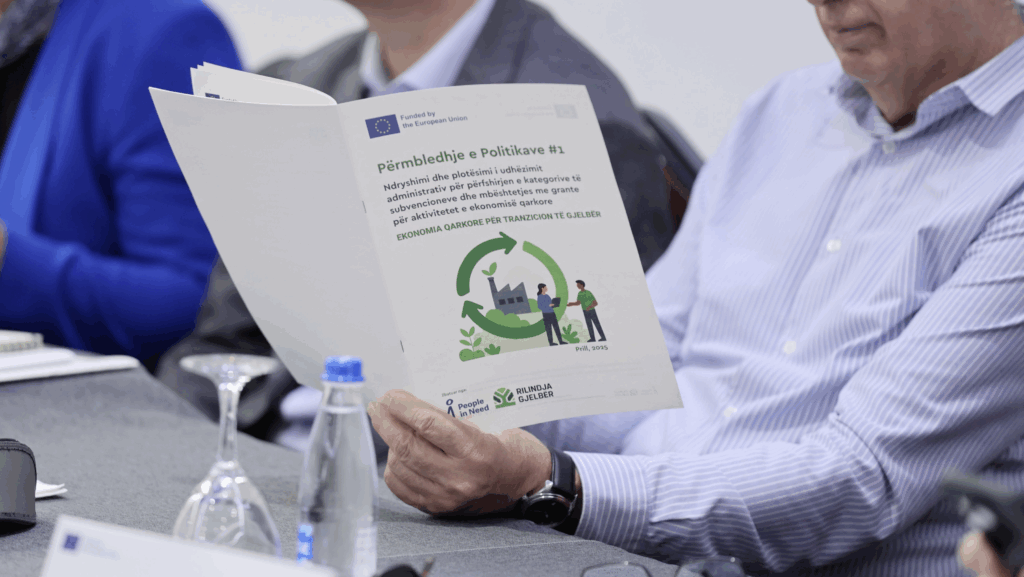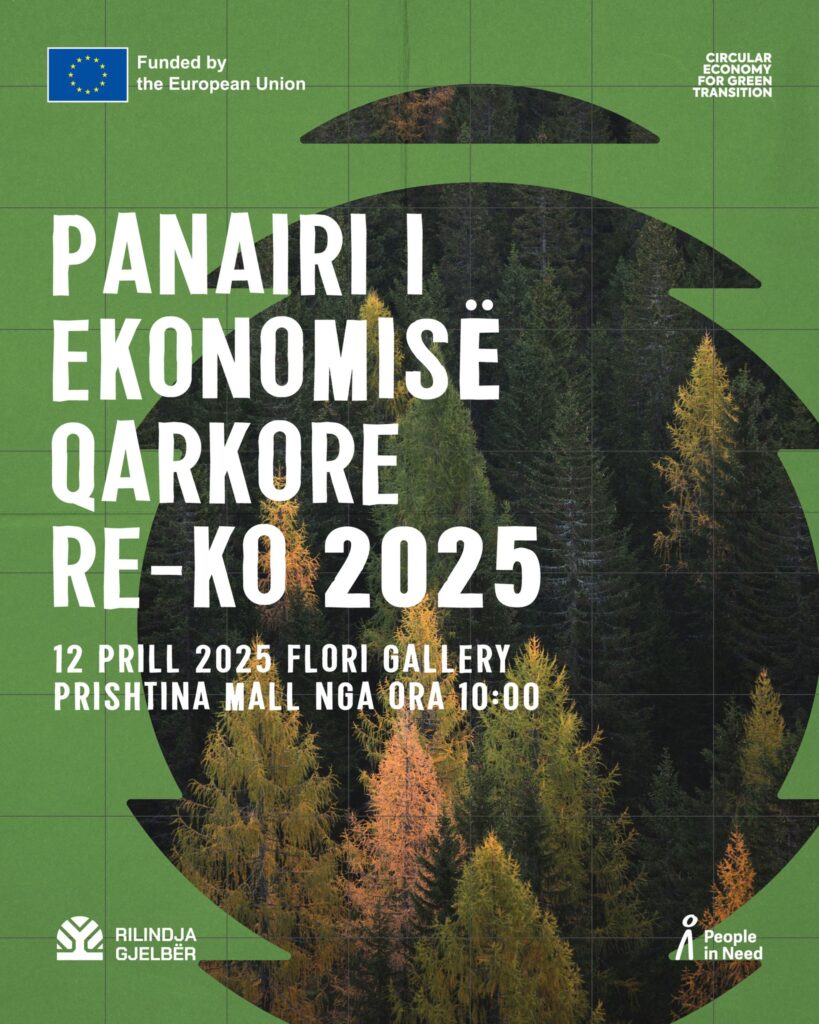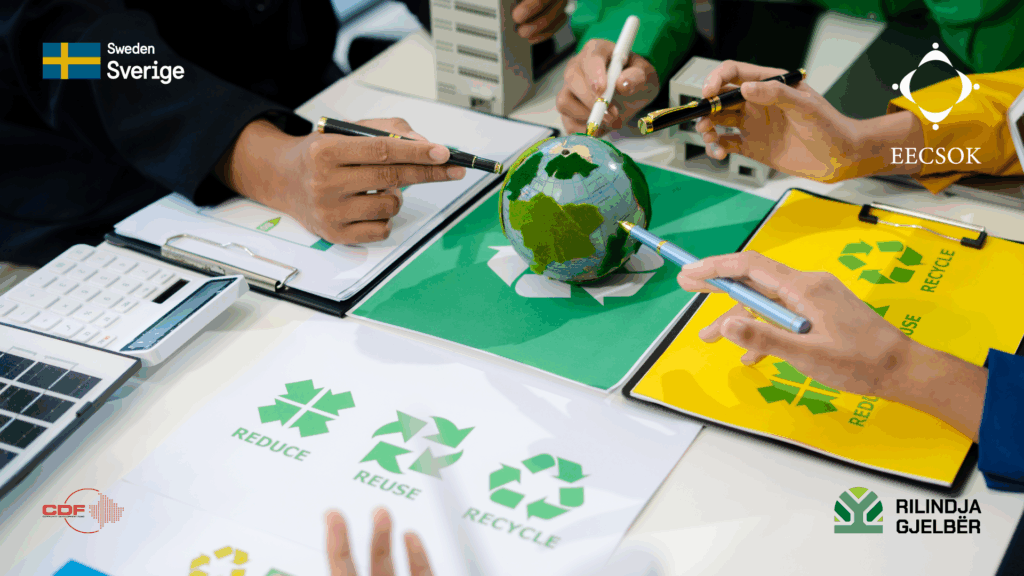Kosovo’s Environmental Legal Framework: Progress, Challenges, and the Path Toward Sustainable Development
Introduction
Kosovo has undertaken significant efforts to develop a comprehensive legal framework for environmental protection, aiming to address the country’s growing ecological and public health challenges. This framework regulates a broad spectrum of areas, including air quality, waste management, land use, and forest conservation, reflecting Kosovo’s ambition to align its environmental governance with European Union (EU) environmental directives and international standards for sustainable development.
Nevertheless, the country continues to face serious environmental issues, notably in urban pollution, illegal waste disposal, soil degradation, and deforestation. These persistent problems reveal a gap between the legal framework’s intent and its practical enforcement.
This article provides a detailed examination of Kosovo’s key environmental laws, their significance for sustainable development, and the major barriers to their effective implementation. All the legal instruments discussed are officially published in the Official Gazette of the Republic of Kosovo, the primary platform for legal documentation and governmental regulations.
1. The Law on Environmental Protection: The Cornerstone of Kosovo’s Green Governance
The Law on Environmental Protection (Law No. 03/L-025) serves as the principal legislative document establishing Kosovo’s environmental governance framework. It outlines comprehensive principles and obligations designed to safeguard natural ecosystems, prevent pollution, and ensure the sustainable use of natural resources.
Key Provisions:
- Introduces national environmental standards and guidelines for pollution prevention and control.
- Mandates the sustainable management of Kosovo’s key resources, including water, soil, air, and biodiversity.
- Promotes the integration of eco-friendly and circular economy practices across sectors such as agriculture, industry, and urban development.
- Establishes mechanisms for environmental monitoring, public reporting, and enforcement.
- Imposes legal and financial penalties for entities that violate environmental regulations.
This law is the foundational pillar upon which all subsequent environmental legislation in Kosovo is built. It plays a central role in promoting environmental protection as an essential element of the country’s broader economic and social development agenda.
2. The Law on Air Protection: Combatting Kosovo’s Chronic Air Pollution Crisis
Kosovo has long struggled with dangerously poor air quality, particularly in urban centers like Prishtina, Obiliq, and Mitrovica. A combination of factors, including the operation of coal-fired power plants, outdated heating systems, vehicular emissions, and industrial pollution, has resulted in PM2.5 and PM10 concentrations that consistently exceed EU limits, especially during the winter months.
The Law on Air Protection (Law No. 08/L-025) was introduced to establish a national framework for regulating air pollutants and mitigating their harmful effects on public health and the environment.
Key Provisions:
- Defines permissible limits for particulate matter, nitrogen oxides (NOx), sulfur dioxide (SO₂), carbon monoxide (CO), and ozone (O₃).
- Requires industrial facilities, power plants, and the transportation sector to reduce emissions and adopt cleaner technologies.
- Mandates the establishment of air quality monitoring stations and public dissemination of real-time air quality data.
- Incentivizes the use of renewable energy sources and energy-efficient technologies to reduce reliance on fossil fuels.
Despite these measures, Kosovo continues to rank among Europe’s most polluted regions. The persistence of coal-based energy production and the absence of a widespread transition to clean heating solutions remain critical barriers to success.
3. The Law on Spatial Planning: Balancing Development and Conservation
Unregulated urban expansion and poorly planned infrastructure projects pose severe risks to Kosovo’s ecosystems, green spaces, and agricultural land. The Law on Spatial Planning (Law No. 04/L-174) governs how land is used to ensure a balance between economic development and environmental preservation.
Key Provisions:
- Guides urban development to prevent sprawl, protect natural landscapes, and mitigate the impact of construction on ecosystems.
- Mandates that municipalities integrate green infrastructure into urban planning, including parks, public green spaces, and sustainable transportation systems.
- Introduces environmental impact assessment (EIA) requirements for major development projects.
- Protects agricultural and forested land from overdevelopment.
However, enforcement gaps persist, and construction projects frequently bypass environmental safeguards. Inadequate application of environmental impact assessments and insufficient urban sustainability plans have led to the loss of biodiversity and degradation of peri-urban and rural landscapes.
4. The Law on Waste Management: Addressing Kosovo’s Waste Crisis
Kosovo faces a severe waste management problem, with an estimated 400,000 tons of waste generated annually (Kosovo Environmental Protection Agency, 2024). Much of this waste ends up in unregulated dumpsites or is openly burned, contributing to soil and water contamination and exacerbating public health risks.
The Law on Waste Management (Law No. 04/L-060, amended by Law No. 08/L-071) establishes a regulatory framework aimed at minimizing waste generation, promoting recycling, and transitioning toward circular economy practices.
Key Provisions:
- Requires municipalities to implement waste separation at source, collection, and treatment systems.
- Regulates the handling and disposal of hazardous waste to prevent environmental contamination.
- Encourages public-private partnerships (PPPs) to attract investments in modern waste management infrastructure.
- Promotes waste reduction through producer responsibility schemes and awareness campaigns.
Despite this legal framework, Kosovo’s recycling rate remains alarmingly low (5-7%), and illegal dumping remains pervasive, particularly in rural areas with limited waste collection services.
5. The Law on Forests: Combating Deforestation and Protecting Biodiversity
Kosovo’s forests are vital for climate regulation, biodiversity conservation, and soil protection. However, widespread illegal logging and poor forest management have resulted in severe deforestation, particularly in the Sharri Mountains and other critical ecosystems.
The Law on Forests (Law No. 2003/3, amended by Law No. 04/L-088) regulates the management, protection, and sustainable use of Kosovo’s forest resources.
Key Provisions:
- Prohibits unauthorized logging and establishes licensing mechanisms for controlled timber harvesting.
- Introduces reforestation programs and financial incentives for forest restoration.
- Mandates environmental impact assessments for all major projects affecting forested areas.
- Establishes penalties for illegal logging and other violations.
While the law is robust on paper, enforcement is weak. Kosovo’s forestry agencies lack adequate resources, including personnel and technology, to monitor and manage large, remote forest areas effectively.
Persistent Challenges in Law Enforcement and Governance
Despite the existence of comprehensive environmental legislation, Kosovo’s enforcement mechanisms are frequently undermined by institutional limitations and low public compliance.
Key Barriers:
- Limited Institutional Capacity: Environmental agencies at both national and municipal levels often lack sufficient staffing, funding, and technical expertise to monitor compliance and enforce regulations effectively.
- Weak Public Awareness: Many citizens and businesses are unaware of their legal obligations, contributing to widespread non-compliance and persistent illegal practices such as unregulated waste dumping and deforestation.
- Corruption and Regulatory Gaps: In some cases, weak governance, overlapping mandates between institutions, and limited political will have allowed illegal activities to persist.
- Urbanization Pressures: The demand for rapid urban development often overrides environmental concerns, resulting in construction projects proceeding without proper environmental assessments.
Addressing these challenges requires a multi-sectoral approach, including stronger institutional frameworks, cross-border cooperation on transboundary pollution, and the empowerment of local communities to participate in environmental protection.
Recommendations for Strengthening Kosovo’s Environmental Governance
Kosovo’s journey toward sustainable development will depend on bridging the gap between its legal framework and its on-the-ground implementation. The following actions are essential:
- Strengthen regulatory enforcement: Equip environmental agencies with the necessary financial and human resources to monitor and enforce compliance effectively.
- Enhance public awareness campaigns: Develop nationwide educational programs on the importance of environmental protection and citizens’ legal responsibilities.
- Promote green technology adoption: Provide incentives for industries to invest in renewable energy, energy efficiency, and sustainable production methods.
- Foster public-private partnerships: Engage private sector actors in joint projects to expand infrastructure for waste management, renewable energy, and pollution control.
- Ensure consistent application of environmental impact assessments: Enforce stricter EIA procedures across all sectors, including construction, energy, and resource extraction.
Conclusion
Kosovo’s legal framework for environmental protection is a promising foundation for sustainable development, yet implementation gaps and governance weaknesses hinder its full potential. Strengthening enforcement, raising awareness, and investing in sustainable solutions will be essential for ensuring environmental security and safeguarding the well-being of current and future generations.
With coordinated action from government institutions, businesses, civil society, and the public, Kosovo can transition toward a greener, more resilient future—one that balances economic growth with the protection of its natural environment.





